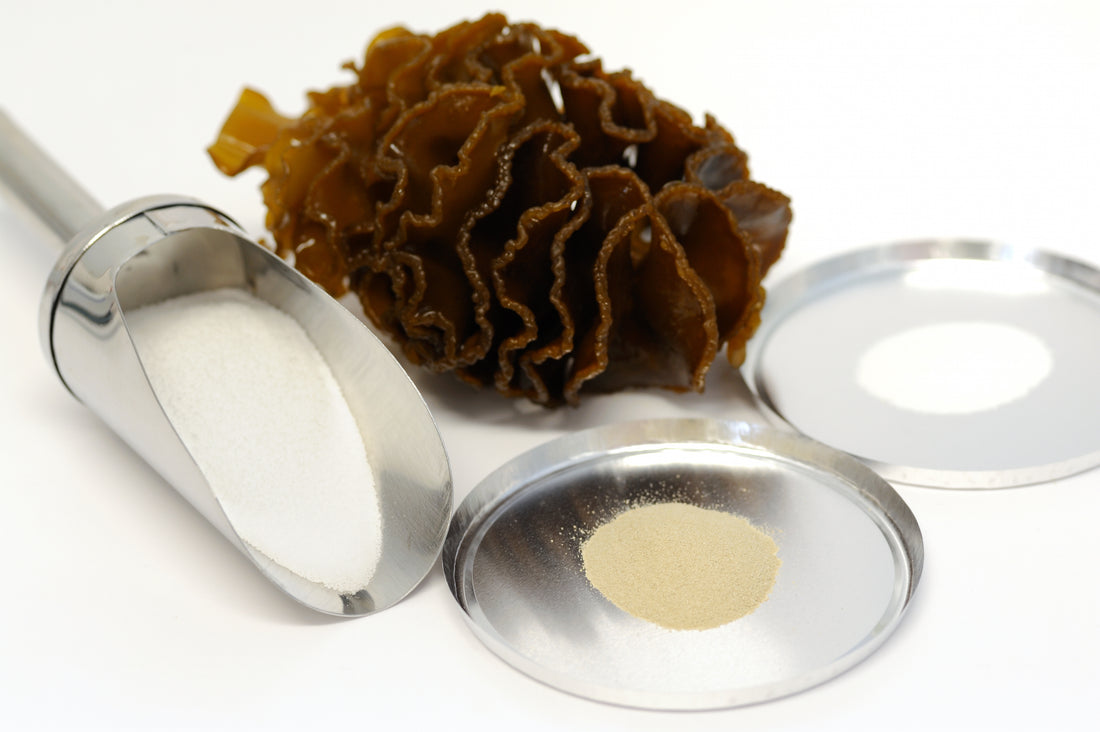In the realm of natural compounds with potential health benefits, fucoidan stands out as a remarkable substance found abundantly in various species of brown seaweed. With a history deeply rooted in traditional Asian medicine, recent scientific research has shed light on its numerous potential health benefits, captivating the attention of both researchers and health enthusiasts alike. In this blog post, we delve into the fascinating world of fucoidan, exploring its origins, properties, and the compelling reasons why it's garnering increasing interest in the realm of wellness.
Understanding Fucoidan: Fucoidan is a complex polysaccharide primarily extracted from brown seaweed, such as kombu, wakame, and bladderwrack. It's known for its unique chemical structure, which includes fucose, sulfate groups, and other sugar residues. This molecular composition is believed to be responsible for its diverse biological activities and potential health-promoting effects.
The Benefits of Fucoidan:
-
Immune System Support: Fucoidan has been extensively studied for its immunomodulatory properties, which may help regulate the immune response. Research suggests that it can enhance the activity of certain immune cells, such as natural killer (NK) cells and macrophages, thereby bolstering the body's defense mechanisms against pathogens and foreign invaders.
-
Anti-inflammatory Effects: Chronic inflammation is implicated in various diseases, including arthritis, cardiovascular disorders, and certain cancers. Fucoidan exhibits potent anti-inflammatory properties, which may help mitigate inflammation by inhibiting pro-inflammatory pathways and cytokines. This makes it a promising candidate for managing inflammatory conditions and promoting overall well-being.
-
Antioxidant Activity: Free radicals, unstable molecules that can damage cells and contribute to aging and disease, are counteracted by antioxidants. Fucoidan demonstrates antioxidant activity, scavenging free radicals and reducing oxidative stress. By protecting cells from oxidative damage, it may help prevent oxidative-related ailments and support longevity.
-
Potential Anti-Cancer Properties: Preliminary studies suggest that fucoidan may possess anti-cancer properties, showing promise in inhibiting tumor growth, metastasis, and angiogenesis (the formation of new blood vessels to support tumor growth). While further research is needed to elucidate its mechanisms and efficacy, these findings offer hope for the development of novel cancer therapies.
-
Gastrointestinal Health: Fucoidan has been investigated for its potential role in promoting gastrointestinal health. It may exert prebiotic effects by serving as a substrate for beneficial gut bacteria, thus supporting gut microbiota balance and digestive function. Additionally, its anti-inflammatory properties may alleviate symptoms of gastrointestinal disorders, such as inflammatory bowel disease (IBD).
-
Skin Care Benefits: The skincare industry has taken notice of fucoidan's potential benefits for skin health. Studies suggest that it possesses moisturizing, anti-aging, and wound-healing properties, making it a sought-after ingredient in cosmetics and skincare products. Its ability to enhance collagen synthesis and protect against UV-induced damage further contributes to its appeal in skincare formulations.
Conclusion: Fucoidan represents a fascinating convergence of traditional wisdom and modern science, offering a treasure trove of potential health benefits. From immune system support and anti-inflammatory effects to its possible role in cancer prevention and skincare, this natural compound continues to captivate researchers and health enthusiasts worldwide. While further research is warranted to fully elucidate its mechanisms and therapeutic potential, the existing body of evidence underscores the promising role of fucoidan in promoting overall health and well-being. As interest in natural remedies continues to grow, fucoidan stands out as a shining example of nature's profound healing potential, waiting to be explored and harnessed for the betterment of human health.

